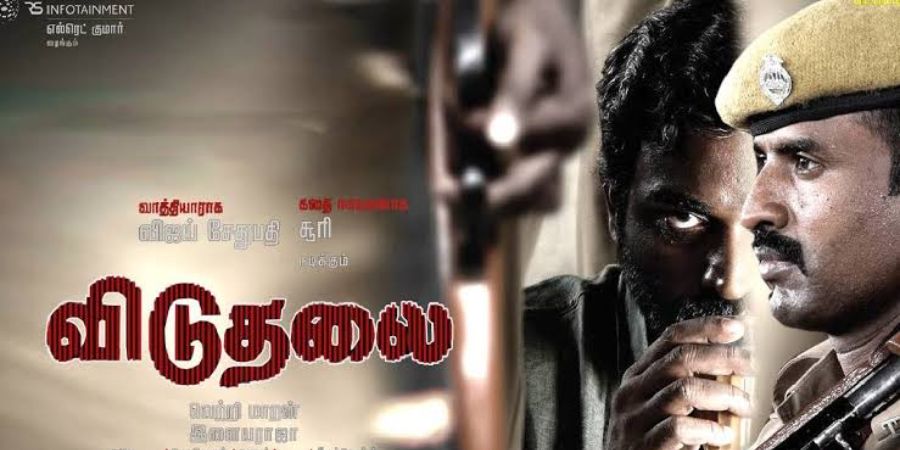

Pros - Heart wrenching brutal cinema . Before getting into detail it's definitely not for light hearted . Viduthalai part1 plays a major role in setting up for part 2 . This time narration wise and making wise there was slight difference from Vetri's previous works . Part 1 explores the world of Viduthalai , Police brutality , separatist and politics . Narration was slow , but that doesn't means flat . Soori as protagonist gave a realistic show stealing performance . VJS had less screentime but created quite impact . Other cast did their part really well , they had enough scope throughout the movie , even GVM played his part neatly . Technical wise , impressive cinematography especially opening single shot sequence one of the best in kollywood , opening shot clearly established the tone of the movie . In a slow burner movie , Climax was total bang , action set pieces were well choreographed , excellently captured and edited . Ilaiyaraaja's back ground scores were well suited to this dark tone and periodic movie , songs were really great . Atlast part 2 glimpse literally increased the hype .
Cons - Asusual dubbing was poor as expected , lip syncing were totally odd in most of the places . Editing in few places weren't upto the mark .
Overall , a slow burning crime drama . Definitely worthy one for your patience and time Highly recommended . Strictly 18+ .vet
At the end of Viduthalai Part 1, Vetri Maaran teases the audience with the footage from the upcoming second part, which almost looks like a lazily edited trailer. Looking at the dramatic moments in those visuals, I am more excited about that Part 2, which will be more political and to the point. Viduthalai Part 1, as a single movie, cannot be called a hard-hitting film as the emphasis is mainly on building that world around constable Kumaresan. On a combined watch, there is a possibility that Viduthalai could well be as impressive as a Visaranai.
The movie is set in the 80s, and it is about this forest area in Tamil Nadu where a rebel force is in guerilla warfare against the police as they oppose the arrival of an industry giant. The police had the task of destroying this force led by a man named Perumal, aka Vaathiyar, as the government wanted to give the state an industry-friendly tag. The police hunt for Perumal and the People’s Force and the brutality that happened with those who empathized with Perumal are what we witness in the film.
Like most of his other films, here also, Vetri Maaran is exploring the system versus the oppressed theme. His hero, Kumaresan, is someone who doesn’t feel revolt is a necessity despite facing discrimination in the workplace from higher officers. The placement of the power arch in order to showcase the politics is done neatly. But like I said, a good chunk of the core is happening in the future segment, and hence you are kind of leaving the theater when you were about to feel for those characters. Having said that, it is not a zero-impact preachy drama. The climax chase and police torture that happens parallelly really set the ball rolling for a thumping part 2.
The film opens with a lengthy single-take shot of a train accident caused by a mine blast. Velraj’s frames cover the perspective of politicians, bureaucrats, media persons, and victims, and the scale of that shot somewhere gives you an idea about the intensity of that event. Vetri Maaran then reduces the tempo as he introduces the naive protagonist Kumaresan to the audience and the real world. Kumaresan is a righteous guy who never apologizes to his senior for helping an ailing old lady. The sidelining that’s there within the system and the way the police treat the villagers are shown in the signature Vetri Maaran way with bloodshed. The climax sequence of the movie that has Kumaresan going against the Vaathiyar as he wants to save those innocents who rooted for Vaathiyar was a great presentation of irony mixed with a dilemma.
